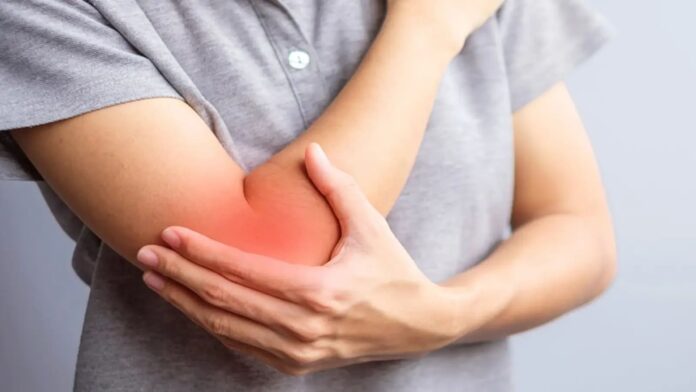Tips for keeping your joints healthy: What causes joint pain and how diet and exercise can help keep your joints strong and active.
We often ignore our joints and forget how important they are for our daily movements until we start to feel pain. Maybe you notice stiffness when you wake up in the morning. Or you hear a slight crunch in your knees when going up the stairs,. There’s also that dull ache that appears after sitting for too long (a familiar feeling). These warning signs are your body’s way of telling you to pay attention and care for your joints the way they need.
What is the cause of joint pain in the body?
Joints are the places where two bones meet. They are cushioned by cartilage, supported by ligaments and muscles, and kept smooth with a natural fluid called synovial fluid. But over time, everyday wear and tear, injuries, inflammation, or even long bouts of inactivity can wreak havoc on our joints. This can lead to:
- Pain
- Swelling
- Stiffness
- Reduced mobility
Dr Charu Dutt Arora, Geriatrician, AmeriHealth, Asian Hospital, tells Health Shots: “As a geriatrician, I meet many individuals who come in with joint troubles. Some are desk-bound young professionals, others are athletes who’ve overdone it a bit, and many are older adults living with arthritis. What I’ve learned through all these interactions is pretty clear: our joints reflect how we live, what we eat, how much we move, and how well we rest.”
You can protect and even boost your joint health at any age with some simple daily habits.
How to keep joints healthy?
-
Keep moving your joints, but do it gently
Movement is like food for your joints. They thrive on it! Activities like walking, swimming, yoga, or cycling help maintain flexibility and strength. “Gentle movement encourages circulation and helps in keeping everything lubricated,” shares the physician. So, lace up those sneakers and get moving.
Keep in mind:
- Avoid sudden heavy lifting.
- Stay clear of jerky movements that can put unnecessary strain on your joints.
2. Maintain a healthy weight for your joints
Did you know that every extra kilo of weight puts about four extra kilos of pressure on your knees? So, keeping your weight in check is one of the easiest ways to lessen the stress on your joints.
Why it matters:
- “Even small weight losses can significantly reduce joint pain,” explains the doctor.
- A balanced diet paired with exercise can keep those extra pounds at bay, as per the Centers for Disease Prevention and Control.
3. Eat foods that love your joints back
Who knew your dinner plate could play a role in joint health? Including joint-friendly foods in your diet is a surefire way to help reduce inflammation and strengthen your bones.

Food to include:
- Omega-3-rich foods: Fish, walnuts, and flaxseeds are great for reducing inflammation.
- Vitamin D and calcium: Found in dairy products, sunlight, and leafy greens, these keep your bones strong, according to the National Institute of Health Office of Dietary Supplements.
- Antioxidant-rich fruits and veggies: They help repair damage and promote overall health.
- Hydration: Remember to drink enough water! Your joints need it to keep cartilage smooth.
4. Build strong muscles for your joints
Your muscles are like shock absorbers for your joints, as per Medical Hypotheses. Strengthening them can create better support and reduce the pressure on your joints. This can be a game-changer!
Simple exercises:
- Leg raises
- Wall sits
- Resistance band workouts
All of these exercises can make a difference over time, according to the UK’s National Health Institute. Plus, they’re pretty easy to fit into your daily routine!
5. Don’t ignore early signs of joint pain
If you’ve got ongoing joint pain, swelling, or stiffness, don’t brush it aside. It is important to see a doctor early! Sometimes, what feels like just a minor sprain could be the beginning of arthritis or another underlying condition that needs attention.
Why it matters:
- “Early intervention can often prevent more significant issues down the road”, suggests the expert.
- A little attention now can lead to better health later!
6. Check your posture
Believe it or not, the way you sit, stand, or even sleep can significantly affect your joints. Poor posture can lead to discomfort and strain on your joints.
Tips for good posture:
- Ensure your workspace is comfortable and ergonomically designed.
- “Sit upright and be mindful of your posture while standing” explains the geriatrician.
- Take regular stretch breaks, especially if you’re desk-bound for long periods.
“From my experience, many people find they regain mobility and reduce pain by implementing small but consistent changes. A simple daily walk, warm compresses on sore joints, a balanced diet rich in nutrients, and some basic strengthening exercises can work wonders,” says the palliative care specialist.

